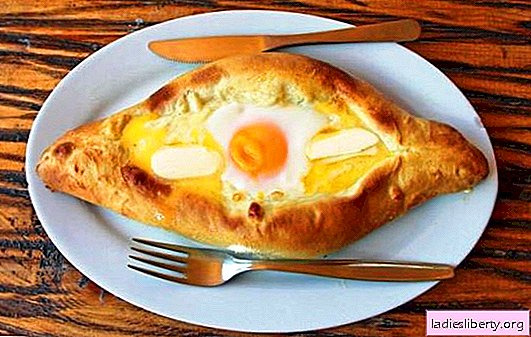
Diabetes mellitus is a widespread complex disease that requires, as a rule, not only a constant intake of hypoglycemic agents, but also a mandatory diet.
Moreover, dietary nutrition for diabetes is 50% success in treatment. This is a disease of the elderly: it mainly develops after 40 years, and with age the risk of the disease increases.
The main risk factor in this pathology is overweight - it is dangerous even for people who do not have a hereditary predisposition. Type 1 diabetes mellitus, if the diet is not followed, can be complicated by coma and even be fatal. Since with this pathology there is a violation not only of carbohydrate, but also of fat metabolism, nutrition in diabetes is aimed at normalizing them. Its goal: reducing excess weight and replacing some carbohydrates in the diet with other components.
General principles of nutrition for diabetes
To successfully cope with the disease, you must strictly follow the basic principles of nutrition for diabetes. They relate to the main components, calories, frequency of food intake:
1. Nutrition. It depends on the patient’s body weight:
• at normal weight, the body's need is 1600 - 2500 kcal per day;
• in excess of normal body weight - 1300 - 1500 kcal per day;
• with obesity - 600 - 900 kcal per day.
There are certain features in calculating the daily diet: for some diseases, a low-calorie diet is contraindicated, despite the existing excess body weight. These include, first of all, complications of diabetes itself:
• severe retinopathy (damage to the choroid of the eyes);
• nephropathy in diabetes with nephrotic syndrome (damage to the kidneys with a high protein content in the urine);
• as a result of nephropathy - developed chronic kidney failure (CRF);
• severe diabetic polyneuropathy.
Contraindications are mental illness and somatic pathology:
• unstable course of angina pectoris and the presence of life-threatening arrhythmias;
• gout;
• severe liver disease;
• other concomitant chronic pathology
2. The specific proportion of carbohydrates in the daily diet of a diabetic should be no more than 55% - 300 - 350 g. This refers to complex, slowly fissile carbohydrate products with the vitamins, microelements and indigestible fibers contained in them:
• various cereals from whole grains;
• whole grain bread;
• bean;
• vegetables.
They must be evenly distributed in the daily diet, divided into 5-6 receptions. Sugar and the products in which it is contained are strictly excluded, it is replaced by xylitol or sorbitol: 1 g per 0.5 kg of body weight (40 - 50 g per day for 2 to 3 doses).
3. The amount of protein is approximately 90 g per day, which is the physiological norm for any healthy person with normal blood sugar. This amount corresponds to 15 - 20% of the total daily diet. Recommended Protein Products:
• meat of any poultry without skin (with the exception of goose meat);
• chicken eggs (2 - 3 pieces per week);
• low-fat fish;
• dairy products with low fat content (kefir, fermented baked milk. Cottage cheese).
4. The fat content in the diet for diabetes should not exceed 30% of the daily diet - it is 80 g. At the same time, 2/3 of this amount is vegetable oil.
5. Limitation of salt to 12 g per day (in order to prevent certain types of complications of diabetes), foods containing a lot of cholesterol and extractive substances (strong meat broths).
Prohibited Products
There are products (containing glucose) that must be categorically excluded from nutrition for diabetes. Even in small quantities, their use is contraindicated. These include:
• sugar, honey, all sweets made from fruits and berries (jam, marmalade, jam, jam), chocolate, sweets, grapes, bananas, dates, figs;
• fruit drinks with sugar, coca - cola, tonic, lemonade, liquor;
• sweet and semi-sweet wines, fruits, preserved in sugar syrup;
• pies, pastries, biscuits with sweet cream, puddings;
• rice;
• canned food, smoked meats, sausages;
• alcoholic drinks - even the weakest ones contain a large number of calories.
Products allowed in limited quantities
The following products are allowed in very small quantities:
• low-fat meats, fish products, skinless chicken, eggs, cheese (at the same time, only one of the listed protein products can be consumed once during the day);
• butter, margarine, whole and baked milk;
• any vegetable oil;
• salt;
• nuts (up to 50 g).
Products that may be consumed in metered amounts
In dosage amounts, it is recommended:
• cereals, bran flakes;
• wholemeal bread, whole grain cookies (crackers);
• pasta;
• all fresh fruits (no more than 1-2 per day).
Recommended Foods for Diabetes
It is recommended to eat without any restrictions:
• green vegetables;
• berries: gooseberries, cherries - a bottle, any kind of currant, blueberries;
• citrus fruits: lemons, grapefruits;
• tea, coffee, fruit drinks without added sugar, water;
• pepper, seasonings, mustard, various herbs, vinegar;
• sweeteners.
An example of daily meals for diabetes for a week
Based on these products, recommended for nutrition in diabetes, a menu is prepared for every day and all week:
Monday
First breakfast: low-calorie cottage cheese with a small amount of milk, a rosehip broth.
Second breakfast: jelly from any permitted fruits or berries with xylitol, orange.
Lunch: cabbage cabbage soup, low-fat boiled meat with stewed vegetables, a decoction of dried fruits without sugar.
Snack: broth from rose hips.
Dinner: sea kale, baked low-fat fish, vinaigrette with corn oil, stewed eggplant with onions, tea.
Tuesday
First breakfast: buckwheat porridge with the addition of corn oil, steamed omelette, vegetable salad with sunflower oil (tomatoes, cucumbers, bell peppers), bran bread, unsweetened tea with milk.
Second breakfast: broth made from wheat bran.
Lunch: borsch with a spoon of sour cream, boiled lean meat, stew from various allowed vegetables, jelly on xylitol from unsweetened fruits.
Snack: grapefruit.
Dinner: steamed fish, carrot schnitzel with cabbage, fruit broth.
Wednesday
First breakfast: low-calorie cottage cheese casserole.
Lunch: oranges (2 medium in size).
Lunch: cabbage soup, 2 cutlets of low-fat fish, fresh vegetables, fruit compote without sugar.
Snack: 1 boiled egg.
Dinner: stewed cabbage, 2 small-sized meatballs steamed or cooked in the oven.
Thursday
First breakfast: wheat milk porridge, boiled beet salad with corn oil, tea.
Second breakfast: yogurt with a minimum fat content - 1 cup.
Lunch: fish soup, barley porridge, meat goulash.
Snack: a salad of different fresh vegetables.
Dinner: vegetables stewed with lamb.
Friday
First breakfast: oatmeal, carrot salad, apple.
Lunch: 2 medium-sized oranges.
Lunch: cabbage soup, 2 stuffed with meat and allowed pepper grits.
Snack: carrot casserole with low-fat cottage cheese.
Dinner: a salad of any vegetables, stewed chicken without skin.
Saturday
First breakfast: any porridge with bran, 1 pear.
Second breakfast: soft-boiled egg, unsweetened drink.
Lunch: vegetable stew with lean meat.
Afternoon snack: several permitted fruits.
Dinner: vegetable salad with lamb stew.
Sunday
First breakfast: low-calorie curd cheese, fresh berries.
Second breakfast: boiled chicken.
Lunch: vegetarian vegetable soup, goulash. squash caviar.
Snack: berry salad.
Dinner: beans, steamed shrimps.
It must be remembered that with mild to moderate severity of the disease, diet is a determining therapeutic measure. In severe illness, it is an essential part of treatment.











